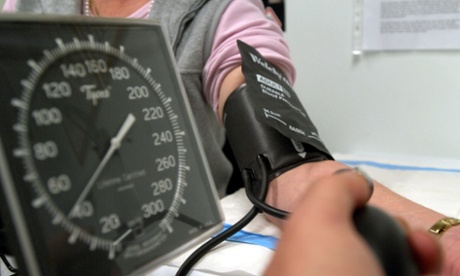Mathias Cormann says there is still ‘ample time’ to secure support for contentious budget measures, including the $7 Medicare co-payment, despite previous ‘budget emergency’ rhetoric

Senior ministers have moved to dispel the sense of “crisis” surrounding the Senate impasse over contentious budget measures, as Tony Abbott signalled he was reluctant to exempt pensioners from the proposed new GP co-payment.
The finance minister, Mathias Cormann, gave a speech on Tuesday night saying the government always knew that the process of securing support for structural changes including the Medicare co-payment and the higher education overhaul was “going to be a marathon and not a sprint”.
He pointed to the fact the budget appropriations bills – including the $7.6bn cut to projected foreign aid spending – had passed the parliament in full and there was “still ample time to keep engaging with the Senate crossbenchers and to properly prioritise and deal with budget measures sequentially in an orderly and methodical fashion”.
Abbott, when in opposition, argued the nation faced a “budget emergency” and a “budget crisis”. Last month the treasurer, Joe Hockey, told parliament: “Everyone who has an ounce of credibility on economics recognises that if we do not address the budget crisis now the pain associated with fixing it in five, 10, 15 or 20 years is going to be far greater for Australians.”
But on Wednesday, the government released figures indicating that nearly 99% of expense measures had already been legislated, mostly because of the normal passage of the appropriation bills.
The federal budget includes about $1.9tn in expenses over four years. Only about $20bn in net expense measures, or about 1%, had not yet been implemented by legislation, according to the government.
Major structural changes, however, are yet to be legislated. These include the GP co-payment, welfare changes and reintroduction of fuel excise indexation.
Hockey said the government needed to get the “budget challenge” under control but the day-to-day business of government was being delivered.
“The day-to-day bills are being paid but we need to lay down the structural response to the … debt burden that has been left by the Labor party,” the treasurer said on Wednesday.
“The fact is we want to get on with the job of delivering stable predictable government for Australia. If the government lives within its means then that gives business and consumers confidence that there is not going to be any surprises in the future to address what would be a massive challenge.”
Hockey, who has spent the five-week winter parliamentary recess talking to senate crossbenchers in an attempt to find common ground on budget measures, said “corrective action” must be taken now.
“We’ve got to get on with the job now. The quicker we take action to fix the structural challenges left by Labor over the next decade the less severe the response would have to be in the future,” Hockey said.
“We have engaged very productively with sensible senators and I am very confident that we will be able to prevail, that despite the best efforts of the Labor party and the Greens to derail our attempts to fix the mess they left I am confident that we can get the structural savings through.”
The independent South Australian senator Nick Xenophon expressed his confusion about the government’s apparent change in rhetoric.
“A few weeks ago we were led to believe the budget was on life support, now we find out it’s on a banana lounge in Hayman Island,” Xenophon told the Australian Financial Review.
In an ABC radio interview in Brisbane on Wednesday, Abbott said it was “worth reminding” listeners that “a lot of the savings in the budget have already gone through”.
Abbott later told Fairfax radio station 4BC the government would have to talk to the crossbench in order to secure passage of the proposed $7 Medicare co-payment, but he expressed scepticism about the prospect of exempting pensioners.
Exemptions or greater protections for vulnerable groups are believed to have been proposed by the Australian Medical Association in its talks with the government.
The prime minister said the separate existing Pharmaceutical Benefits Scheme (PBS) co-payment was lower for pensioners than for general patients, and they were only fully exempted from that charge after a certain number of purchases each year: “If we don’t exempt pensioners from the PBS co-payment, why should they be entirely exempted from the Medicare co-payment?”
Abbott added: “I’m pretty sure that we will end up with a modest co-payment. Now, the precise detail of the arrangement – let’s wait and see how we go with our discussions with the AMA and the crossbench, but a co-payment makes sense. It makes economic sense, it makes health policy sense; frankly it makes fairness sense.”
The opposition’s health spokeswoman, Catherine King, said “no amount of fiddling can fix Tony Abbott’s rotten GP tax” and Labor would “not stand by and allow this government to destroy Medicare”.
“Taxing sick Australians will only prevent them seeing a doctor, leading to more serious and expensive health problems,” she said.
“There is indisputable evidence of this with reports from healthcare and medical groups that patients are being deterred from seeing GPs and getting pathology tests because of fears they would be hit by the GP tax … Any compromise on the GP tax will be nothing more than a cynical political fix by a desperate government.”
Next week when the parliament returns the government is expected to prioritise Senate debate on the reindexation of fuel excise and the proposed increase to the existing PBS co-payment for subsidised medicines.
Department of Health officials told a Senate committee on Tuesday that concerns about the cost potentially deterring people from filling their scripts were unfounded.
